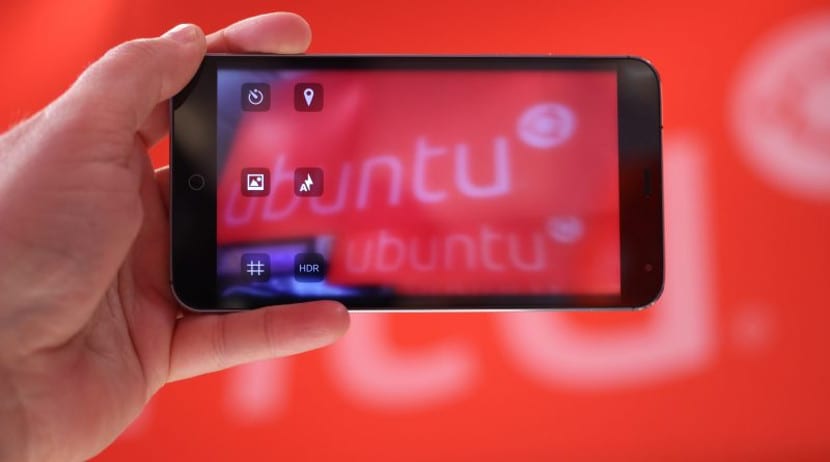
It has been more than six months since Canonical's first announcement not to launch any more devices with Ubuntu Phone and several months since Mark Shuttleworth announced the end of support from Ubuntu and Canonical. And despite all this, there is still harsh criticism for the fact.
In this case, developer Simon Raffeiner, a developer of apps for Ubuntu Phone, owner of several terminals and participant in hackathons related to Ubuntu Phone, has come forward. Simon Raffeiner has written on his blog a tough article on Canonical's management of Ubuntu Phone. Affirming and pointing out several errors that were committed during its development and that justify its abandonment. Among these reasons is the search in an unprofitable niche. Android and iOS were the rivals of Ubuntu Phone but its lovers were looking more for a rival to face the monopoly of Google and Apple than a functional system. In many cases users did not consider it as functional.
Ubuntu Phone was not as open as all users thought
The objectives set by Canonical were too ambitious, too ambitious, hence also its downfall. Canonical sought to gain 1% of the mobile market, a very high percentage for a system like Ubuntu Phone, even more so if we take into account that there are not so many people who use Ubuntu as an operating system. The scarcity and misinformation about mobile phones was another negative point.
But perhaps the creation of a little open operating system such as Ubuntu Phone was the most negative of all this. According to Simon Raffeiner, Ubuntu Phone was not as open an operating system as Canonical implied. In many cases users did not choose and were only limited to a Github repository where pullrequets were made but nothing else. And the truth is that many users are those who report this situation.
Either way, Simon Raffeiner represents a part of history that is rarely noticed, the world of developers. Canonical has not responded and will not respond, but it appears that this means a new developer joining UBPorts Do not you think?
I just wanted to have it. I even spoiled a moto x 2 when trying to install a beta port that some developers had made 🙁
Distribution failed, that's what happened
mmm but release it for the community
I have it, but I think the biggest problem is that most applications were webapps and the fact of not having whatsapp does not make it attractive to non-Linux users either. Anyway now it's time to eat the terminal
You don't have to eat the terminal, at least if it's BQ; on the web they explain how to flash it and put Android on it. In less than half an hour you have it with Android.
First of all, thank you very much for your answer, Iván. If it is a BQ, I bought it the first day it went on sale because I was very excited to have a phone with Linux. What I mean is that it gives courage that they have left the project and all the people who bought the terminals with enthusiasm. In short, it is what it is. Again, thank you very much for your reply.
It does not matter. I bought the BQ tabet with Ubuntu. I thought it would be an "Ubuntu but on Tablet". I think that the advertising about the product did not explain well that there is practically no software; which made ports of Firefox and Libreoffice but the rest of the applications were just dodgy snaps. You could not even see many videos in avi / mp4 ... A tablet with which you can not consume multimedia is hardly good for anything.
The project would have been interesting if they had brought the power of Ubuntu to phones and Tablets… But they didn't. Luckily, and this is always done by BQ, they let you flash and install Android, as I explained.
I had a Windows Phone and now that they are going to leave it without support, Microsoft does not give me the tools to install Android ... That is really painful.
The rapprochement between Canonical and Microsoft meant the abandonment of convergence and the Ubuntu Phone. Look no further for explanations. Business is like that and in most cases millions are imposed over principles and ethics.
There is nothing to explain, and nothing failed, simply Android is already so extremely widespread that you no longer change it, it is like WhatsApp, we don't like it but let's see who supersedes WhatsApp. All other explanations are Indian movies.
Well, I honestly like Android. It may not be 100% OpenSource, but it must be recognized that it is mature and Linux-based. Although it is not the freedom that we all want, telephones are sold by companies and you cannot modify yourself and do it your way. I know there was a phone to assemble yourself,
but it did not come to fruition.